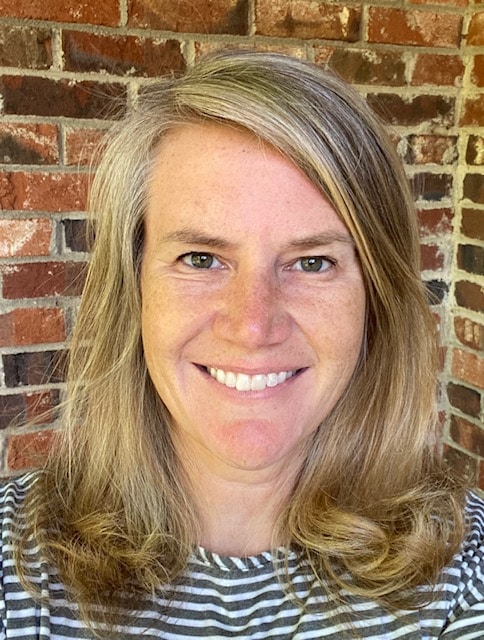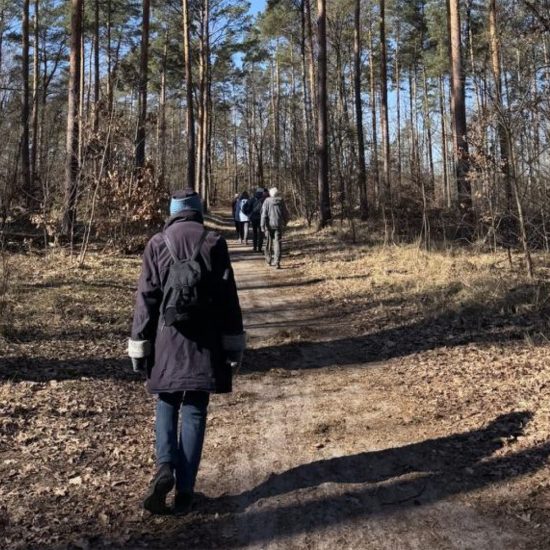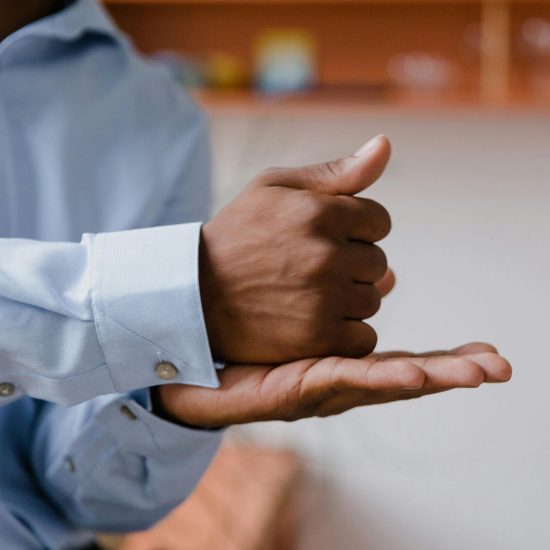
In my experience, the local church has always been great at responding to individual crises. I have seen it time and time again through my years in communities of faith. A beloved member has cancer, and the congregation rallies to provide meals, transportation, or financial support. Cards and prayers abound. Bereavement committees show love and compassion to grieving families through their gifts of hospitality. New parents receive meals and gifts as they adjust to the struggles of parenthood. Refugees get English tutoring, household supplies, and help navigating the education system. Phone trees, church bulletins, class emails, and online sign-ups have kept us organized and ready to spring into action whenever a need arose.

Sarah Blackwell
Throughout much of my life, though, the crises have come either one at a time or maybe with just a handful of members that are in deep stages of need. When they have been set adrift by the storms of life, there have been plenty of us left in the boat to keep them tethered and pull them back in when the time was right. We did these things out of Christian love, yes, but there was also an unspoken belief that we never knew when we might need to be the recipient of our own rescue.
When the pandemic came, though, the whole boat tipped over at once, and we did not know what to do. Our model of the larger group tending to the few in need was swept away. It is like when Jesus said to seek out the one lost sheep, but all one hundred got out at the same time. Our shepherds, the pastors, were like skippers left on ships (that no one could get back into) trying to throw out as many lifelines and personal floatation devices as they could, while still trying to keep the whole ship from going down and rescue their own families. In the aftermath, several categories of people emerged.
Some of us were drowning. The elderly, immunocompromised, healthcare workers, and people who experienced job loss were literally on death’s door. Maybe these folks are no longer drowning, but they are exhausted and do not have the strength to climb back into the boat.
Some of us ended up in nice lifeboats and, while not pleased, were content enough to float along. Maybe now we feel we have drifted too far to go back to the original boat? We wonder if it will be awkward if we return now. Maybe we even feel some guilt because we did not have it as bad as many others.
Some of us washed up on some luxurious islands where we decided we might as well stay a while. Maybe we found traveling on the weekends or sleeping in or brunch at our favorite place to be a pretty good substitute for being on the boat. Returning to the boat is now out of our normal routine, and we have filled our time with some other pretty fun things.
Some of us washed up on islands of isolation like Tom Hanks in the movie Castaway. Maybe we have been alone or lonely for so long that we have forgotten how to connect with other people. We want to re-engage, but it all seems difficult after being on our own for so long.
Some of us swam so hard and fast at the beginning that we completely exhausted ourselves. Maybe we now feel like we have nothing more to give or that all our efforts were made in vain to rescue those who either did not want rescuing or drifted away despite our efforts. We may be wondering what was the point of our hard work that went unrecognized.
Some of us realized the boat we were in was not a good fit. Maybe we finally feel free now to ask bigger faith questions. The open waters have given us freedom and strength to pursue new questions more expansive than we had in the past. We may not be the same person we were when we toppled into the water. It feels weird to climb back into the same boat where we expect others will think we are the same as we were.
Some of us were picked up by shinier new boats. The ones with the slickest digital presence or flashiest worship services may have been attractive during the pandemic. Maybe it was fun to have a new experience for a while, but now we are once again craving the close personal connections of a smaller community of faith. We may not be sure how to get back there, though.
Some of us floated out in the water waiting to be rescued. Maybe we wondered: why hasn’t anyone from the church contacted me? Why is no one helping me? Frankly, it is hard to save a drowning person when you are just trying to stay afloat yourself.

Daniele Levis Pelusi / Unsplash
No matter which type of person you are, I think many have been deeply wounded by a church that did not pursue them in the way they hoped. I know this can be so painful, but my honest question is, who was supposed to come for you? Who was not traumatized in some way over the last two and a half years? Did you reach out to anyone that may have had even harder circumstances? I think some people believe that the church abandoned them in their time of deepest need. I do not doubt that we all needed the church, but it is time now to extend some grace and release this judgment we have put on others who did not even know it was their job to do.
Thus, it is time to turn back to the boat and give each other some grace. We need to find the ones out in the water closest to us and work on swimming back to the boat together. Extend some kindness to the skippers and thank them for simply keeping things afloat. They are exhausted — more than “need a vacation” tired. They are tired in the depths of their souls, just like the rest of us. Find a way to help them rebuild. Ask them to give you the manifest and some people who still need to be found out there. If we each reach one, we can return everyone to the community that the boat provides.
We must be mindful, though, that the people who have been thrown out of the boat for any reason are not the same people as before. They may not have space or capability for idle chitchat. They have experienced the brink of life and death and do not want to waste time on inauthentic relationships of convenience. The most faithful, solid, and loyal person you know, may not be able to even form the words of familiar hymns in their mouths. Some have been shaped by an endless stream of polarizing media in the absence of their time spent in the physical presence of the diverse body of Christ. They may need help reconnecting with those different than themselves. While things may appear “back to normal,” there are deep scars from a collective trauma that many are just beginning to have enough space in their life to process specifically. Make no assumptions about the lives lived out on the open water or the types of sharks that may have swirled around them — just give space for those who have been changed to let you know more about who they are now. It is the perfect time for some testimonials about what happened after the boat capsized. That will allow us to appreciate being back in the boat again together and learning about who we are now.
I missed the people on my boat — being shoulder-to-shoulder in the faith journey together. I still believe that fellow-“ship” and wor-“ship” are worth returning back to. So, to honor all the skippers out there, let’s be “all hands on deck” this fall as we try to right the ship together and keep searching out those who remain set adrift.
Sarah Blackwell is a contributing writer at Word&Way and a 2020 graduate of the Gardner-Webb School of Divinity. She is adjunct instructor in the Religion and Philosophy Department at Wingate University in Wingate, NC. Her favorite castaway will always be Mary Ann from Gilligan’s Island. Follow her writings at www.proximitytolove.org.






